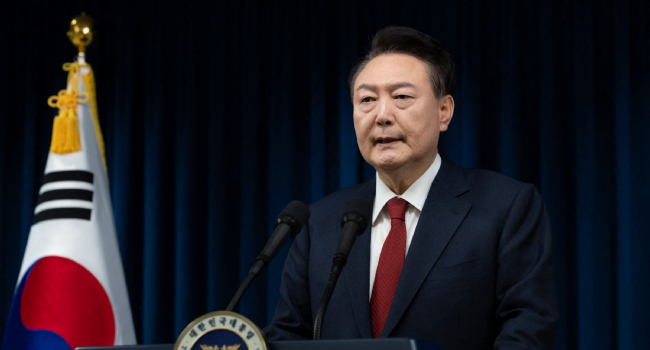South Korean President Yoon Suk Yeol has been placed under a travel ban by the Ministry of Justice, making him the first sitting South Korean president to face such a restriction. This follows a tumultuous week after Yoon briefly imposed martial law, sparking nationwide chaos.
On December 3, Yoon sent special forces and helicopters to the parliament building in an attempt to enforce martial law, but lawmakers quickly rejected his decree, forcing him to rescind the order. Despite surviving a narrow impeachment vote on Saturday, the president remains under intense scrutiny, with several investigations targeting him and his close allies, including one related to alleged insurrection.
The justice ministry confirmed the ban, which also applies to former defense minister Kim Yong-hyun—who is in detention—and ex-interior minister Lee Sang-min. General Park An-su, who oversaw the martial law operation, along with defense counterintelligence commander Yeo In-hyung, are also restricted from leaving the country.
The impeachment motion against Yoon failed after members of his own party, the People Power Party (PPP), walked out of the session, preventing the necessary two-thirds majority for removal. In response, the PPP claims Yoon has agreed to transfer power to the prime minister and the PPP leader. This move has sparked backlash from the opposition, with Democratic Party floor leader Park Chan-dae condemning it as a “second coup” and unconstitutional.
Under South Korea’s constitution, the president holds supreme authority unless incapacitated or resigns, with power temporarily passing to the prime minister. The opposition argues that the president’s decision to delegate authority without a legal basis violates the constitution.
Despite the controversy surrounding his leadership, Yoon remains at the head of South Korea’s military, especially crucial given the ongoing tensions with North Korea. Yoon has apologized for the unrest caused by the martial law declaration but has not resigned, insisting that decisions about his future rest with his party.
The ruling party’s claims that Yoon can continue in office while delegating power to unelected officials have been widely criticized by constitutional experts, who argue that it resembles an unconstitutional coup.
As public outrage continues to mount, with Yoon’s approval rating plummeting to a historic low of just 11%, the opposition is planning another impeachment vote this Saturday, with large crowds expected outside the National Assembly building.
